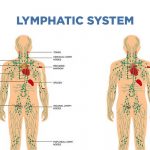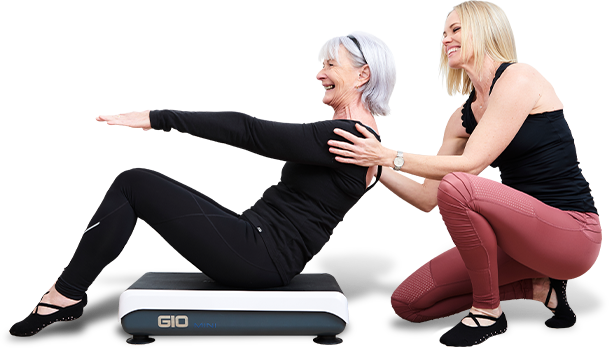The Ultimate Guide to Vibration Plates: Benefits, Usage, and Top Picks
In the world of fitness and wellness, the vibration plate has emerged as a popular tool for a diverse range of health benefits. This comprehensive guide will delve into what a vibration plate is, how it works, its benefits, and how to use it effectively. We’ll also address common questions and skepticism, review the top vibration plates of 2023, and provide a list of exercises you can do using a vibration plate.
- 1 What is a Vibration Plate?
- 2 The Science Behind Vibration Plates
- 3 Benefits of Using a Vibration Plate
- 4 How to Use a Vibration Plate
- 5 Do Vibration Plates Really Work?
- 6 Top Vibration Plates of 2023
- 7 Potential Downsides and Precautions
- 8 Precautions When Using Vibration Plates
- 9 Vibration Plate Exercises
- 10 Incorporating Vibration Plates into Home Workouts
- 11 Vibration Plate vs. Traditional Exercise
- 12 Frequently Asked Questions about Vibration Plates
- 13 Conclusion
What is a Vibration Plate?
A vibration plate is a fitness device that uses high-frequency vibrations to stimulate the body’s muscles. As you stand, sit, or exercise on the vibrating platform, the machine transmits energy to your body, causing your muscles to contract and relax multiple times per second. This rapid muscle activity is believed to offer a range of health and fitness benefits.
The Science Behind Vibration Plates
Vibration plates operate on the principle of Whole Body Vibration (WBV), a concept that dates back to ancient Greek times. The high-frequency vibrations from the plate cause a stretch reflex in your muscles, leading to rapid contractions and relaxations. This process stimulates muscle growth, improves circulation, and enhances overall fitness.
Benefits of Using a Vibration Plate
Using a vibration plate can offer numerous benefits. These include:
- Muscle Strengthening: Rapid muscle contractions help to strengthen and tone muscles.
- Improved Metabolism: Regular e can boost metabolism, aiding in weight loss.
- Enhanced Circulation: The vibrations stimulate blood flow, improving circulation throughout the body.
- Reduced Joint Stress: Unlike high-impact exercises, using a vibration plate is gentle on the joints.
How to Use a Vibration Plate
Using a vibration plate is relatively straightforward. You can stand, sit, or perform exercises on the plate while it vibrates. The key is to maintain balance and engage your core muscles. Start with shorter sessions and gradually increase the duration as your fitness level improves.
Do Vibration Plates Really Work?
While some skepticism surrounds vibration plates, numerous studies suggest they can be effective when used correctly. They are not a magic solution for weight loss or fitness, but they can complement a balanced diet and regular exercise routine.
Top Vibration Plates of 2023
Several vibration plates stand out in 2023:
- Hypervibe Whole Body Vibration Machine: The Hypervibe is a premium choice, offering a powerful motor for intense workouts and a smart display for easy control.
- LifePro Waver Vibration Plate: Known for its user-friendly design and excellent customer reviews.
- Powerfit Elite Vibration Plate: Comes with loop resistance bands for a full-body workout.
- Bluefin Fitness Vibration Platform: Features silent motors and built-in speakers for an enjoyable workout experience.
Potential Downsides and Precautions
Limited Effectiveness for Weight Loss
While vibration plates can boost metabolism and aid in weight loss, they should not be relied upon as a standalone solution. A balanced diet and regular cardio and strength training exercises are crucial for effective weight loss.
Risk of Injury
Incorrect use of vibration plates can lead to injuries, especially if pre-existing conditions affect your bones or joints. It’s essential to learn the correct techniques and start with lower intensity to avoid any potential harm.
Precautions When Using Vibration Plates
Medical Conditions
Certain individuals should exercise caution or avoid using vibration plates:
- Pregnant women: Vibration plates may pose risks during pregnancy and should be avoided.
- Individuals with joint problems: Those with arthritis or other joint issues should consult a doctor before using a vibration plate.
- People with cardiovascular diseases: The rapid muscle contractions could put a strain on the heart, so those with heart conditions should seek medical advice first.
Proper Usage
To minimize risks, follow these guidelines:
- Start slow: Begin with shorter, less intense sessions and gradually increase as your body adapts.
- Maintain balance: Keep your knees slightly bent to maintain balance and prevent falls.
- Stay hydrated: Drink plenty of water before and after your session to stay hydrated.
Vibration Plate Exercises
Vibration plates offer a unique way to enhance your workouts. Here are some exercises you can perform on a vibration plate.
-
Squats
-
Push-ups
-
Lunges
-
Planks
Squats on a vibration plate can help strengthen your lower body. Stand on the plate with feet shoulder-width apart, bend your knees and lower your body, then rise back up.
Performing push-ups on a vibration plate can intensify this upper body exercise. Place your hands on the plate, extend your legs behind you, lower your body, then push back up.
Lunges on a vibration plate can target your glutes and thighs. Stand on the plate, step one foot forward and bend both knees, then push back up and switch legs.
Planks on a vibration plate can challenge your core. Place your forearms on the plate, extend your legs behind you, and hold your body in a straight line.
These exercises can provide a balanced workout, targeting different muscle groups. Remember to start with shorter durations and lower intensities, gradually increasing as your fitness improves. Always maintain proper form to avoid injury.
Incorporating Vibration Plates into Home Workouts
Vibration plates can be a valuable addition to your home workout routine.
-
Versatility
-
Space-Efficient
-
Time-Efficient
-
Easy to Use
Vibration plates are versatile and can be used for a variety of exercises, from squats and lunges to push-ups and planks. This allows you to target different muscle groups in one session.
Most vibration plates are compact and can easily fit into a corner of your home. This makes them a great choice for those with limited space.
Vibration plates can provide a quick and efficient workout, making them ideal for those with busy schedules. Even a short session can help improve muscle tone and circulation.
Vibration plates are generally easy to use, with adjustable settings to suit different fitness levels. This makes them suitable for both beginners and more advanced users.
Vibration Plate vs. Traditional Exercise
Comparing vibration plates to traditional exercises can help you understand their unique benefits and limitations.
-
Intensity
-
Muscle Engagement
-
Versatility
-
Accessibility
Vibration plates can provide a high-intensity workout in a short amount of time, making them a great option for those with busy schedules. Traditional exercises, on the other hand, often require more time to achieve the same intensity.
Vibration plates stimulate rapid muscle contractions, potentially engaging more muscle fibers than traditional exercises. However, traditional exercises allow for more control over movement and form.
While vibration plates offer a range of exercise options, traditional exercises offer even more variety, from cardio and strength training to flexibility and balance exercises.
Vibration plates require access to the machine and electricity, while many traditional exercises require no equipment and can be done anywhere.
In conclusion, both vibration plates and traditional exercises have their place in a well-rounded fitness routine.
Frequently Asked Questions about Vibration Plates
Vibration plates have become increasingly popular in the fitness world, but they also raise many questions. Here are some of the most frequently asked questions about vibration plates.
What are 10 Minutes on a Vibration Plate Equivalent to?
The equivalent of a 10-minute workout on a vibration plate can vary depending on the intensity of the vibration, the exercises performed, and the individual’s fitness level. Some studies suggest that 10 minutes on a vibration plate can be equivalent to around 30 minutes of traditional exercise, but this can vary widely.
Can You Lose Belly Fat on a Vibration Plate?
While a vibration plate can help boost metabolism and burn calories, it’s not a magic solution for belly fat. Losing belly fat requires a combination of regular cardio and strength training exercises, a balanced diet, and a healthy lifestyle. A vibration plate can complement these efforts but should not be relied upon as the sole method of weight loss.
Are Vibration Plates Safe to Use?
Generally, vibration plates are safe to use for most people. However, certain individuals, such as pregnant women and those with certain medical conditions, should consult a doctor before using a vibration plate. It’s also important to use the machine correctly to avoid injury.
How Often Should I Use a Vibration Plate?
The frequency of use can depend on your fitness level and goals. For general fitness, using a vibration plate for 10-15 minutes, 3-5 times a week, can be beneficial. However, it’s important to listen to your body and adjust as necessary.
Conclusion
Vibration plates offer a unique and efficient way to improve fitness, strengthen muscles, and enhance overall health. While they may not be a magic solution for weight loss or fitness, they can be a valuable addition to a balanced diet and regular exercise routine. As with any fitness equipment, using vibration plates correctly and safely is essential to reap their benefits.
Remember, the key to a successful fitness journey is consistency, a balanced diet, and a well-rounded exercise routine. A vibration plate can be a valuable tool in your fitness arsenal, helping you achieve your health and fitness goals.
References:
“Whole-body vibration exercise in postmenopausal osteoporosis.” Prz Menopauzalny. 2014.
“Whole-body vibration: a genuine therapy or just another ‘weight loss’ fad?” The Conversation. 2017.







